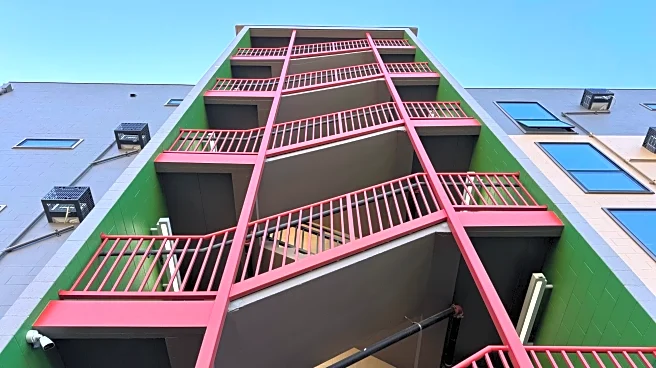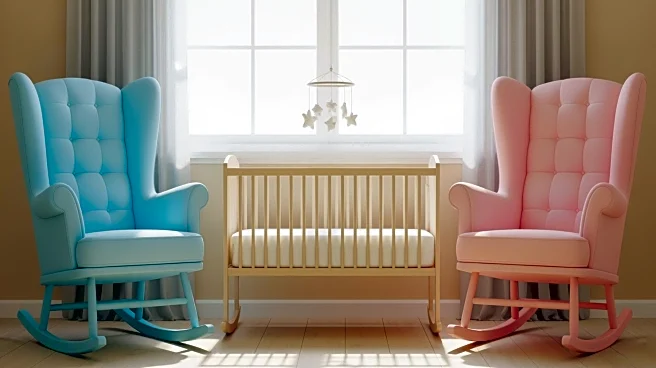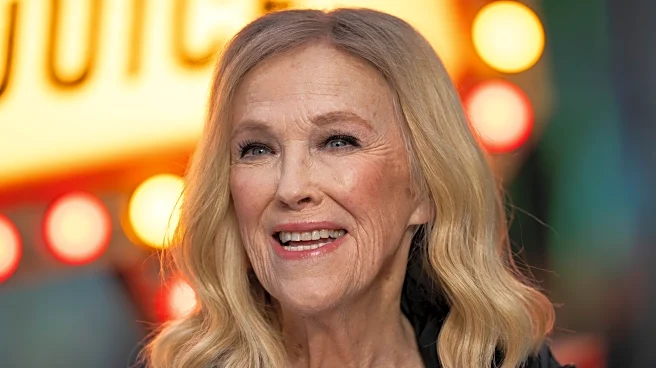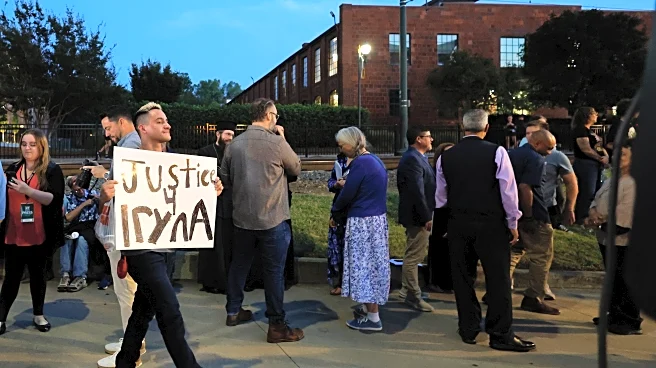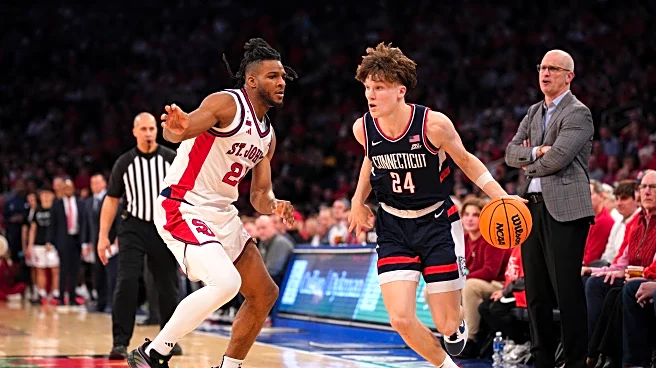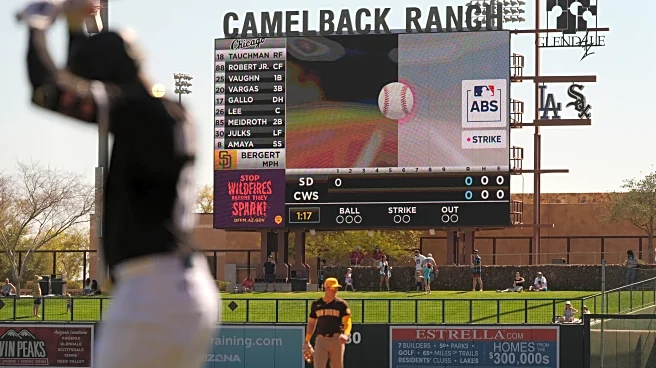Rapid Read • 7 min read
The upcoming film 'The Fantastic Four: The First Steps' is set in an alternate Marvel timeline on Earth-828, featuring a retro-futuristic Manhattan inspired by Stanley Kubrick's '2001: A Space Odyssey.' Directed by Matt Shakman, the film stars Pedro Pascal as Reed Richards, Vanessa Kirby as Sue Storm, Joseph Quinn as Johnny Storm, and Ebon Moss-Bachrach as Ben Grimm. Production designer Kasra Farahani transformed London's Pinewood Studios into a vision of mid-century New York, incorporating influences from architects Eero Saarinen and Oscar Niemeyer. The film's design includes historically accurate vehicles mixed with custom-built retro-futuristic cars, and iconic New York landmarks recreated with a futuristic twist.
AD
The film's design approach highlights a blend of historical accuracy and futuristic imagination, reflecting a broader trend in Hollywood to revisit and reinterpret classic sci-fi aesthetics. This creative direction not only pays homage to iconic works like '2001: A Space Odyssey' but also sets a precedent for future productions aiming to balance nostalgia with innovation. The involvement of high-profile actors like Pedro Pascal further underscores the film's potential impact on the industry, attracting audiences who appreciate both classic and contemporary cinematic experiences.
As the film approaches its release, anticipation builds around how audiences will receive this unique blend of retro and futuristic elements. The success of 'The Fantastic Four: The First Steps' could influence future Marvel projects and other sci-fi films to explore similar design philosophies. Additionally, the film's reception may impact the careers of its cast and crew, potentially leading to more projects that embrace this aesthetic.
The film's design choices may spark discussions on the cultural significance of retro-futurism, exploring how past visions of the future can inform contemporary storytelling. This could lead to a resurgence in interest in mid-century design and architecture, influencing trends beyond the film industry, such as interior design and urban planning.
AD
More Stories You Might Enjoy




